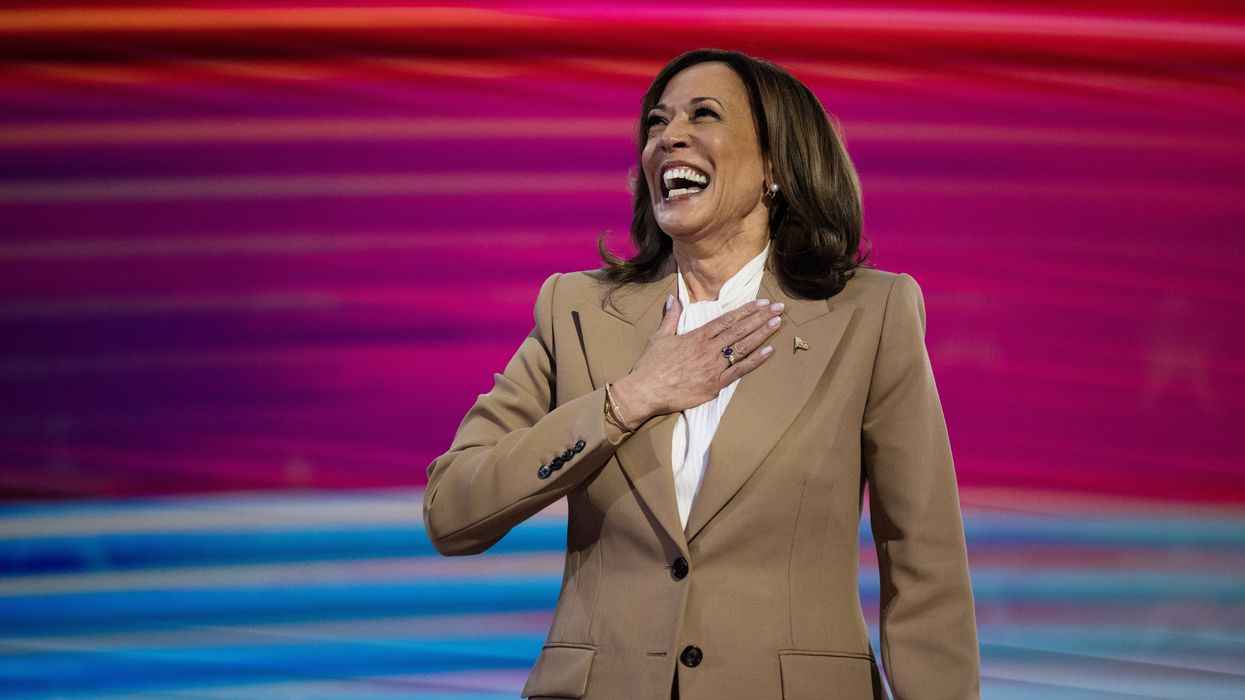Anderson edited "Leveraging: A Political, Economic and Societal Framework," has taught at five universities and ran for the Democratic nomination for a Maryland congressional seat in 2016.
Vice President Kamala Harris, the pundits have reported, has shifted the language of the Democratic Party from democracy to freedom. Even her campaign theme song is Beyonce's "Freedom."
President Joe Biden, especially during the 2020 election, gave preeminent focus to the concept of democracy because he saw himself and the United States fighting the rise of authoritarian countries around the world — notably China, Russia, Iran and North Korea — as well as the increasingly authoritarian nature of the Trump presidency. Biden and the Democrats really widened the scope of their call for promoting democracy over autocracy after Jan. 6, 2021, when Trump incited the insurrection on Capitol Hill.
Woodrow Wilson called on Congress to declare war on Germany on April 2, 1917, because "The world must be made safe for democracy." After Jan. 6, Biden and his party called on the American people to make the country safe for democracy.
Harris is heading in a different direction. She is more concerned about reaching out to voters who feel that their personal freedoms have been denied and could be denied even more. Harris wants women to feel free to have abortions if that is their choice. She wants school children to be free from getting shot at school and free from censorship of the books they read, and poor people to be free from the fear that comes with not having health insurance.
In short, she wants people in the United States to be free to live good lives, to have sufficient funds for child care, to breathe clean air and to love who they want to love. Indeed, Harris and her running mate, Minnesota Gov. Tim Walz, are fighting for basic political, civic and economic freedoms; and they obviously think this is a better message at this time than talking about the threat that Trump and Sen. J.D. Vance (R-Ohio) pose to our basic democratic system.
In some respects, Biden, at least in his campaign language, had focused more on America's place in the world, whereas Harris, in her nascent campaign language, is focusing more on American citizens' place in America.
Historically, Republicans have put freedom on a pedestal — particularly economic freedom at home, which protected big business from heavy regulations and the well-off from excessive taxation as well as the rights of small businesses to flourish. They are now in a tug of war with Democrats over who has more effectively promoted the role of the United States in protecting the value of freedom worldwide.
Franklin Delano Roosevelt (who famously told Congress we needed to protect the four freedoms all people cherish — freedom from fear, freedom from want, freedom of speech and freedom to worship) led the U.S. to victory over the Nazis and Japanese fascism in World War II. Ronald Reagan and George H.W. Bush, on the other hand, led the U.S. to victory over the Soviet Union in the Cold War.
As the presidential campaign evolves in the next few months, the Harris-Walz team would do well to at least make a connection between freedom and democracy, even as they give primary emphasis to freedom. According to the vast majority of political philosophers and political scientists, freedom is a value, arguably the lead value, within the concept of democracy. Democracies promote values like freedom and equality. Autocracies do not.
Democracies that revolve around laissez-faire capitalist economies traditionally have thin concepts of freedom and equality, while democracies that have robust mixed economies traditionally have thicker concepts of freedom and equality. Harris clearly favors a robust mixed economy with a thick concept of freedom — and certainly a thick concept of equality as well.
Sen. Bernie Sanders (Vt.), a democratic socialist or social democrat depending on who is explaining his views, talks more about equality because the left is usually animated by reducing the freedom of the well-off in order to lift the economic and social conditions of the middle-class and the working-class.
Harris should definitely push her freedom ideal because the messaging is excellent, but she should not distort her message by leaving democracy out of the picture. She should be asking voters to recognize that the Democratic candidates are rallying behind a strong concept of freedom, which is housed in a strong concept of democracy.




















 From left to right: Gabriel Cardona-Fox, Bud Branch, Joe Concienne
From left to right: Gabriel Cardona-Fox, Bud Branch, Joe Concienne 